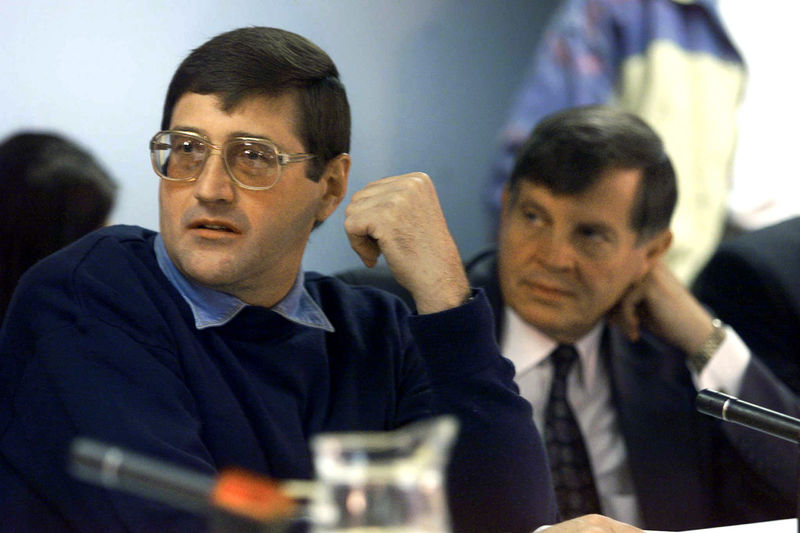By Ed Stoddard
PRETORIA (Reuters) - Apartheid death-squad leader Eugene de Kock, dubbed 'Prime Evil' for his role in the torture and murder of scores of black South African activists in the 1980s and early 1990s, was granted parole on Friday after more than 20 years in prison.
Justice Minister Michael Masutha said de Kock would be released "in the interests of nation-building and reconciliation" and because he had expressed remorse at his crimes and helped authorities recover the remains of some of his victims.
The decision, which had been deferred several times over the last year, is contentious in a country still dealing with the legacy of repression and brutality meted out by the white-minority regime that prevailed from 1948 to 1994.
"He is not supposed to be freed. The atrocities he did to our people were very bad," Aniel Motlhake, 35, a financial planner, told Reuters after the decision.
Many South Africans, however, believe forgiveness is the only way to leave the memories of apartheid behind.
"There are some of our black brothers that killed a lot of white people and also white people that killed," Joseph Dlamini, a taxi driver in Johannesburg, told Reuters. "At some point we need to forgive one another."
The date of the 66-year-old's release from Pretoria 'C-Max' High Security prison would be kept secret, Masutha added.
De Kock's lawyer, Julian Knight, said he had been unable to contact his client and so could not comment on his state of mind or future plans.
WHITE RULE
As head of an apartheid counter-insurgency unit at Vlakplaas, a farm 20 km (15 miles) west of Pretoria, de Kock is believed to have been responsible for more atrocities than any other man in the efforts to preserve white rule.
Arrested in 1994, the year Nelson Mandela and the African National Congress (ANC) came to power, he was sentenced two years later to 212 years in prison on charges ranging from murder and attempted murder to kidnapping and fraud.
However, at a Truth and Reconciliation Commission set up in 1995 to try to unearth - and, in some cases, forgive - crimes committed by both sides, de Kock came clean about the killing of many ANC activists.
Even from behind bars, the bespectacled de Kock continued to cast his shadow over the post-apartheid South Africa.
In a 2007 radio interview, he accused FW de Klerk, the last white president, of having hands "soaked in blood" for ordering political killings. De Klerk, who won the Nobel Peace Prize jointly with Mandela, has denied the allegations.
However, in 2012 he met Marcia Khoza, the daughter of ANC activist Portia Shabangu, whom de Kock executed after an ambush in Swaziland in 1989.
"We greeted each other and shook hands. His handshake was firm," she said after the meeting, at which de Kock described how he shot Khoza's mother twice in the head before pushing the vehicle in which she was travelling down a slope.
"I thought I would cry but strangely enough had the courage to continue to listen to him. I was not jolted because I had long forgiven him," she said.
At the same news conference, Masutha, the justice minister, denied medical parole to Clive Derby-Lewis, an ultra-right wing politician who masterminded the 1993 assassination of Communist Party leader Chris Hani in an attempt to trigger a race war.

Derby-Lewis is reported to be dying of cancer.